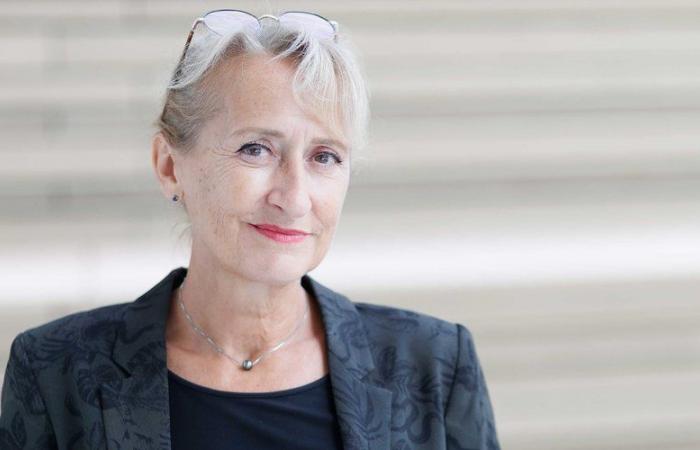
General delegate of the French Franchise Federation (FFF), Véronique Discours-Buhot is hardly surprised by the explosion in the number of fast-food brands observed in Carcassonne, recalling that 2023 was flourishing for the franchise in national scale. And believes that the development of fast food is only just beginning.
Four fast food brands in 2024, two expected in 2025: does this marked development of “fast-food” franchisees in the capital of Aude reflect a national trend?
In 2023, we have seen very strong growth in the franchise, whether in terms of the number of stores or turnover (88.49 billion euros in turnover, up 15.6%, for 92,132 points of sale, up 9%, Editor's note). It is a model that corresponds to the expectations of entrepreneurs, who are committed to a proven and validated concept, with a business model that has proven its success. Entrance tickets vary, depending on the size of the store, the location, the number of employees, and the forecast turnover. Between the brand, the know-how of the franchisor and the support offered, this meets the expectations of many French people who want to start a business: according to the latest study commissioned by the FFF from Opinion Way, more than a third of employees (37%) considered reconversion into entrepreneurship. By becoming franchisees, they are not launching from scratch, they have a contract with the brand; this is a point which also reassures bankers.
Also read:
McDo, Quick, Burger King, KFC, Popeyes: how Aude is succumbing to the wave of fast-food establishments
How is catering, and more particularly fast food, evolving?
It’s a sector that continues to perform. And this corresponds to a social phenomenon, a change in lifestyles initiated with Covid: click and collect, take-away sales have become established. There is a very different way of consuming, especially among younger people. But it's a “trend” (a trend, Editor's note) which also affects older people, who don't hesitate to order takeaway for their evening meal. That said, if there is a boom in fast food, so-called “sit-down” food continues to grow in franchises, there is no cannibalization. These are two ways of consuming: one, considered more convivial, more family-friendly, concentrated on particular days, at the end of the week; the other, for which we are more about individual, everyday consumption.
Also read:
“I cleared the way for the burger world in Aude”: how Alain Grand, his three McDonald’s brands and his 32 years of seniority, perceives the surge in competition
Are medium-sized towns, such as Carcassonne or Narbonne, preferred targets for these brands, particularly fast-food restaurants?
A third of the franchisees' stores are located in towns with fewer than 20,000 inhabitants, a third in towns with 20,000 to 100,000, and a final third in towns with more than 100,000. The brands have concepts that respond to all sizes, franchisors themselves target a minimum size for establishments, with thresholds. But the number of inhabitants is not the only data to be taken into account, there is also the type of population.
Nearly ten fast-food franchises for 45,000 inhabitants by 2025 in Carcassonne: is there not a risk of saturation?
Brands have no interest in their franchisees failing. When granting a franchise, the franchisor is required to provide a local market report. But the franchisee must carry out his study, which will take into account the competition and the population, in order to consider a forecast turnover. If he does things correctly, according to the rules of the art, there is no reason why his project should not work. Without forgetting that he has the possibility of consulting the building permit applications of possible competitors at the town hall.
These franchisees, whether in Carcassonne or Narbonne, all choose commercial areas. Are city centers condemned to do without what could be locomotives for their activity?
Being closer to an area is an advantage, since franchisees know that they can benefit from a clientele that already exists. We know that you need a certain number of customers, or meals, for a franchise to be viable. The zones are the challenge of traffic, but also the certainty of having the possibility of parking, unlike pedestrian city centers, where which are marked by prohibitive parking costs. We understand town halls and their virtuous approaches well; but we encourage them to adopt a pragmatic ecological strategy. The FFF is in contact with the association of mayors of France, with city center managers, we are also lobbying the ministry in charge of Tourism, to tell them to be careful not to slow down tourists with rules too draconian in terms of access and circulation.
This Friday, December 20, the McDonald's in Bram, a town of 3,200 inhabitants, opens its doors. Farmers organize a local farmers' market in protest to highlight a symbol of “junk food”: can fast food get rid of this label?
I think we need to put an end to the opposition between eating quickly and eating well. We see taco concepts that claim the use of fresh products. American brands have made efforts on “healthy food” to meet the expectations of society and French consumers who they know are demanding. But to return to the farmers, they are right to remember that the quality of the products is essential, and this fight to restore the taste of the product and the terroir to our culture is justified. It is thanks to this struggle that there is greater attention to supplier networks. But we will not fight against this social “trend”: we are changing our way of life, we all need to eat quickly. The woman who spends her day at home preparing the meal when the husband comes home from work no longer exists, we have to get it into our heads.
Fast food in two figures
- 317 000. According to Crédit Agricole and its study dedicated to fast food in 2024, the sector would represent 317,000 employees. The French Franchise Federation, in its 2023 report, mentioned 951,620 direct and indirect jobs linked to the 92,132 franchised points of sale identified in France. The FFF estimates the number of jobs generated per franchise at nine. For example, the three McDonald's in Carcassonne and Limoux employ 150 people, the opening of the Burger King in Carcassonne was expected to generate 90 jobs and that of the McDonald's in Bram 40 positions.
- 55 %. This is the share of catering turnover generated by fast food. A percentage delivered by Crédit Agricole in the same market study which specifies that, “the 150 major fast food restaurants in France alone (McDonald's, Quick, KFC, Burger King, Subway, Brioche Dorée, etc.) generated a turnover of 19.04 billion euros”. A study which also quantified the average price of a fast food dish of the day at €11.32: notable, when, since 2019, the average price in restaurants has jumped by 8%.





